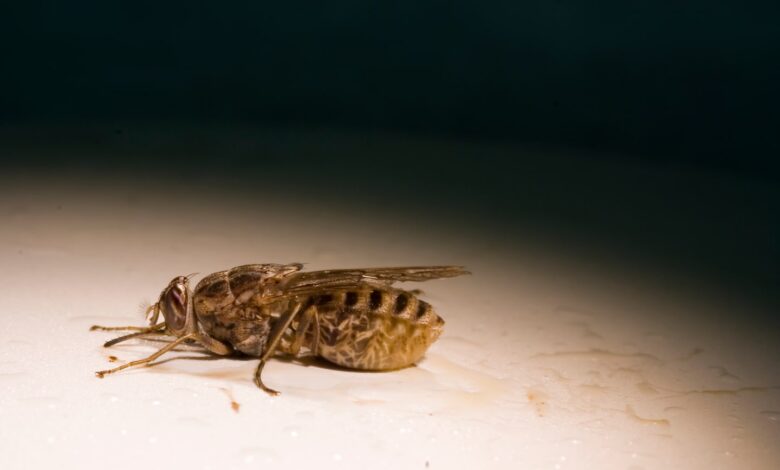Chad eliminates sleeping sickness driven by tsetse fly bites

[ad_1]
Human African trypanosomiasis (HAT) is caused by parasites and spread through the bite of the tsetse fly. The disease can take months or more than a year to progress, first causing flu-like symptoms and then crossing into the central nervous system. HAT can cause behavior changes and disrupt sleep, triggering aggression and other symptoms. When left untreated, it is nearly always fatal. Since there is no vaccine to prevent the disease, eradication efforts usually focus on controlling tsetse flies and preventing fly bites.
The disease comes in two forms named after the type of parasite that causes it. The gambiense form is most common, and makes up about 92 percent of cases. So far, Togo, Benin, Côte d’Ivoire, Uganda, Equatorial Guinea, Ghana and Chad have eliminated the disease. The other variant, the rhodesiense form, has been eliminated in Rwanda.
HAT was once much less common, falling to just 4,435 cases declared in Africa in 1964. But the disease resurged in the second half of the 20th century as emerging African nations underwent wars and political and social instability, and by 1998 the WHO counted 37,991 new cases per year.
Chad eliminated HAT with improved surveillance, testing and pest control, the WHO reports. “This achievement results from years of dedicated efforts by our health workers, communities, and partners,” said Abdel Modjid Abderahim Mahamat, Chad’s minister of health, in the news release. “We will continue this momentum to tackle other neglected tropical diseases and ensure a healthier future for all Chadians.”
[ad_2]
Source link




